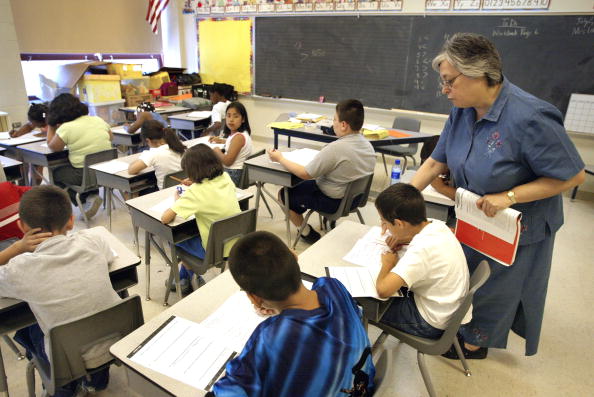América del Norte/Estados Unidos/11 de Septiembre de 2016/Autora: Kristine Walker/Fuente: Parent Herald
RESUMEN: La administración de Obama y sus predecesores durante mucho tiempo han estado abogando por la importancia de la educación de calidad, que tiene el potencial de marcar el comienzo y más oportunidades de éxito. Por desgracia, el costo de la educación en los Estados Unidos sigue aumentando, dejando una gran cantidad de estudiantes lisiados con deuda y préstamos estudiantiles. En el nuevo año escolar, casi 100.000 escuelas públicas ofrecen oportunidades de aprendizaje a unos 50 millones de estudiantes desde el preescolar hasta la secundaria. A pesar de que las tasas de graduación de secundaria han aumentado considerablemente y las tasas de deserción han disminuido, el progreso educativo de Estados Unidos todavía no está casi a la par con otras naciones, McClatchy reveló DC.
The Obama administration and its predecessors have long been advocating the significance of quality education, which has the potential to usher more opportunities and success. Sadly, the cost of education in the United States continues to increase, leaving a lot of students crippled with debt and student loans.
In the new school year, almost 100,000 public schools offered learning opportunities to some 50 million students from kindergarten to high school. Even though high school graduation rates have sharply increased and dropout rates have declined, America’s education progress is still not almost on pace with other nations, McClatchy DC revealed.
With that said, experts believed that a nation that is trailing others like Canada, Germany, France, Korea and Japan in education will lag in international competitiveness, thus contributing to economic challenges. Within the United States, the education sector is also plagued with challenging gaps such as for achievement, by race, wealth and many others.
In spite of the fact that the U.S. federal government could influence policies and practices, education remains the main responsibility of the states. Meanwhile, national education reformers are reportedly targeting local school boards as it becomes a political battleground.
Based on a recent research, Michigan State University (MSU) political science assistant professor and lead study author Sarah Reckhow found that local school boards can serve as significant battlefields in national politics. According to Phys.org, Reckhow also said that there are organizations and donors who see local school board elections as «critical contests» over opposing ideas of education.
The study also found that outside money can be a good thing if the fund came from donors who share the same values and interests of the local residents. But the findings also warned that the local education politics nationalization might lure local leaders into the much theoretically opposed and steadfast position-taking, underwriting the national-level gridlock.
In other education-related reports, a Supreme Court judge ordered the state of Connecticut on Wednesday to come up with a new funding solution for its public schools. Aside from extensive reforms, Hartford Courant reported Judge Thomas Moukawsher also mandated the state to develop clear standards for both elementary and high school levels, not to mention requiring a total reform of Connecticut’s evaluation system of teachers, principals and superintendents.
What are your thoughts on America’s education system? Sound off below and follow Parent Herald for more news and updates.
Fuente: http://www.parentherald.com/articles/65964/20160909/education-latest-news-updates-race-wealth-achievement-gaps-affecting-us-education-progress.htm






 Users Today : 46
Users Today : 46 Total Users : 35460063
Total Users : 35460063 Views Today : 62
Views Today : 62 Total views : 3418693
Total views : 3418693